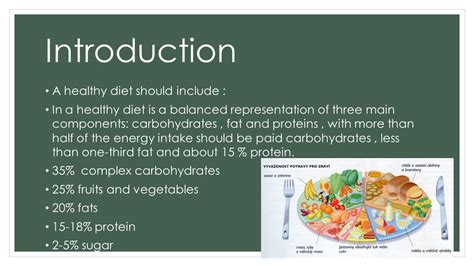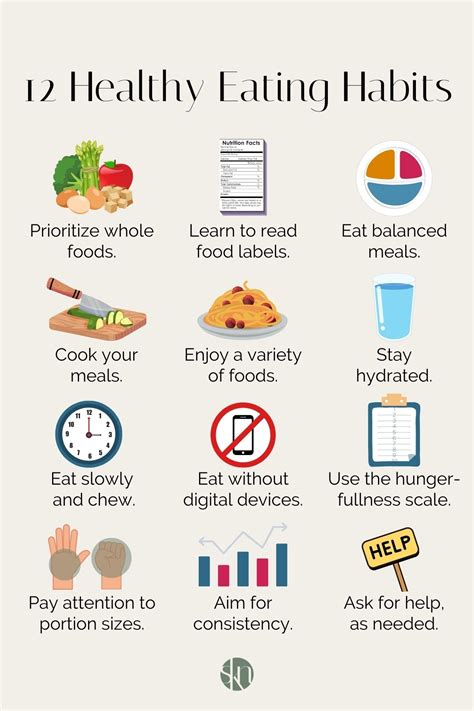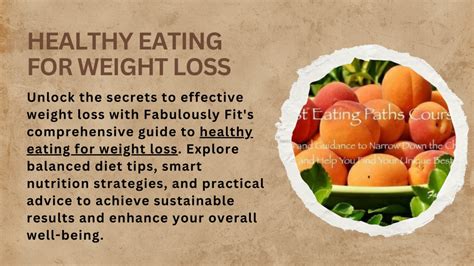Intro
Boost your wellness with 5 healthy eating tips, including balanced diets, nutritious meals, and mindful nutrition, to achieve optimal health and wellbeing through sustainable food choices.
Healthy eating is a crucial aspect of maintaining a balanced lifestyle. With the abundance of food options available, it can be challenging to make informed decisions about what to eat. However, developing healthy eating habits can have a significant impact on overall health and wellbeing. In this article, we will delve into the importance of healthy eating and provide practical tips to help individuals make better food choices.
Eating a healthy diet can help prevent chronic diseases, such as heart disease, diabetes, and certain types of cancer. A well-balanced diet provides the body with the necessary nutrients, vitamins, and minerals to function optimally. Furthermore, healthy eating can boost energy levels, improve mental health, and support healthy weight management. With the numerous benefits of healthy eating, it is essential to understand the key principles of a balanced diet and how to incorporate them into daily life.
Understanding the benefits of healthy eating is the first step towards developing a healthier relationship with food. By recognizing the importance of nutrition, individuals can begin to make informed decisions about their diet. Healthy eating is not about restricting certain food groups or following a specific diet, but rather about making sustainable lifestyle changes that promote overall wellbeing. With the right guidance and support, anyone can develop healthy eating habits that will have a lasting impact on their health and wellbeing.
Introduction to Healthy Eating

Benefits of Healthy Eating
The benefits of healthy eating are numerous and well-documented. Some of the most significant advantages of a balanced diet include: * Reduced risk of chronic diseases, such as heart disease and diabetes * Improved energy levels and mental health * Healthy weight management * Stronger immune system * Improved digestion and reduced symptoms of irritable bowel syndrome (IBS)Healthy Eating Tips

Importance of Meal Planning
Meal planning is a crucial aspect of healthy eating. By planning meals in advance, individuals can ensure that they are getting the necessary nutrients and avoiding unhealthy foods. Meal planning can also help reduce food waste, save time, and save money. Some tips for effective meal planning include: * Creating a weekly meal plan and grocery list * Shopping for fresh ingredients and whole foods * Preparing meals in advance, such as cooking a big batch of rice or roasting a chicken * Using leftovers to reduce food waste and save timeHealthy Eating for Weight Management

Common Mistakes to Avoid
There are several common mistakes that individuals make when trying to develop healthy eating habits. Some of the most common mistakes include: * Restricting certain food groups or following a specific diet, which can lead to nutrient deficiencies and disordered eating * Eating too much or too little, which can lead to weight gain or loss, and nutrient deficiencies * Not paying attention to portion sizes, which can lead to overeating and weight gain * Not drinking enough water, which can lead to dehydration and other health problemsHealthy Eating for Different Life Stages

Nutrition for Athletes and Fitness Enthusiasts
Athletes and fitness enthusiasts have unique nutritional needs that can help support their performance and recovery. Some tips for nutrition for athletes and fitness enthusiasts include: * Eating a balanced diet that includes plenty of whole foods, such as fruits, vegetables, and whole grains * Staying hydrated by drinking plenty of water and electrolyte-rich beverages * Consuming enough protein to support muscle growth and repair * Eating regular meals and snacks to keep energy levels up and support recoveryOvercoming Challenges to Healthy Eating

Maintaining Motivation and Accountability
Maintaining motivation and accountability is crucial for developing and maintaining healthy eating habits. Some tips for maintaining motivation and accountability include: * Setting realistic goals and tracking progress * Finding a workout buddy or accountability partner * Celebrating small victories and rewarding yourself for milestones achieved * Seeking support from friends, family, or a registered dietitianConclusion and Next Steps

We invite you to share your thoughts and experiences with healthy eating in the comments below. What are some of your favorite healthy recipes or meal planning tips? How have you overcome challenges to healthy eating? By sharing your insights and experiences, you can help others develop healthy eating habits and achieve their wellness goals.
What are the benefits of healthy eating?
+Healthy eating can help prevent chronic diseases, improve energy levels and mental health, and support healthy weight management.
How can I develop healthy eating habits?
+Developing healthy eating habits involves eating a variety of whole foods, drinking plenty of water, and limiting processed and sugary foods. It's also important to pay attention to portion sizes and eat mindfully.
What are some common mistakes to avoid when trying to develop healthy eating habits?
+Common mistakes to avoid include restricting certain food groups, eating too much or too little, and not paying attention to portion sizes. It's also important to avoid fad diets and focus on making sustainable lifestyle changes.
